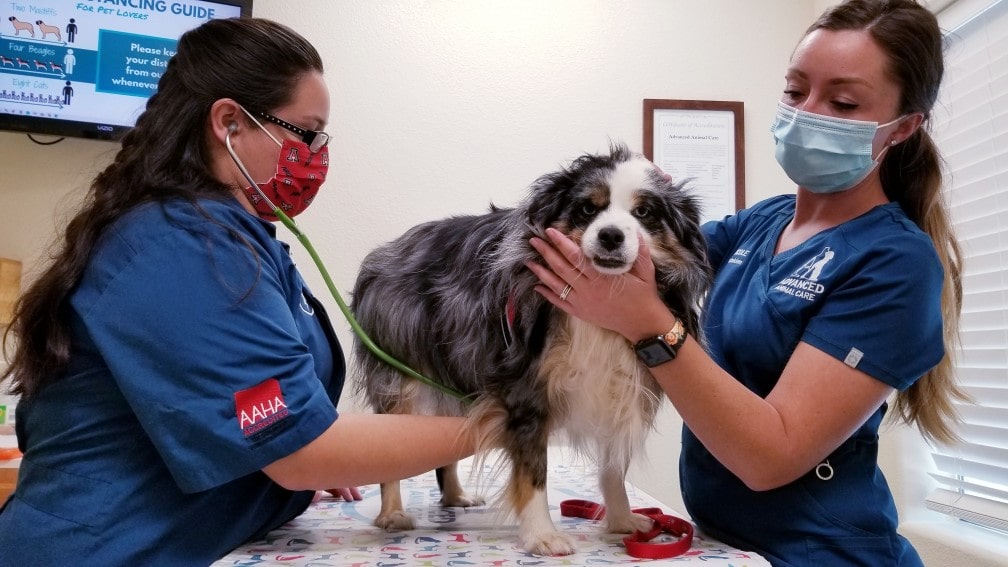Canine Dementia is increasingly becoming a regular case being reported among senior dogs. Many dog owners fail to understand that, similar to humans; dogs can also suffer from mental diseases such as dementia.
Here are 5 warning symptoms of dementia that you should notice if you have a senior dog in the house.
Symptoms of dog dementia:
1. Getting Disoriented Often:
It is a common sign in human patients who are suffering from dementia. Now studies show that dogs also experience disorientation if they suffer from dementia.
If you notice your dog having a hard time finding his way around the house or not being able to locate his food bowl, bed, etc., get them tested. Some dogs may start to lose their concept of spatial awareness. You will find them constantly running into furniture and walls.
Some dogs show symptoms where they just blankly stare into a wall. They start to lose their sense of time, and their sleeping routine gets affected.
2. Mixing Up Sleep Cycles:
Early symptoms of dementia in dogs show up as mixed-up sleep-wake cycles. You may notice your dog, who used to sleep peacefully at night, being restless and barking all night.
They might sleep through the day. This is an early sign of something being wrong with your dog. A quick trip to the vet can help rule out any physical issues that may cause such a symptom.
If your dog seems physically fine, it must be related to its mental health. Get a full mental diagnosis of your dog to determine the root cause of messed-up sleeping cycles. Your vet may prescribe some medication to help your pooch relax during the nighttime.
3. Weird Behavioral Patterns:
If you start noticing your dog interacting with you or your family members differently, you must take them to a vet for tests.
If your dog seems to forget commands and relationships and avoids greeting you like it used to, it can be considered weird behavior. If they stop playing with the kids or suddenly turn violent or aggressive for no apparent reason, they need to be tested immediately.
Your vet may help pinpoint the exact cause of the weird behavioral pattern. There are many other conditions apart from dementia that could cause such symptoms as well.
4. Forgetting Their Basic Training:
This symptom is tricky to notice, but you should take notice when a potty-trained pet starts to have accidents inside the house more often.
Do not scold the pet dog but figure out why such an accident happened, was scared, or if something else is happening. Dogs suffering from dementia may lose the ability to control their bodily functions.
Their brain starts to respond slowly – before they can alarm you about their need to go, they lose control over their system. Now, many other issues could cause accidents like these, so it is important to have them tested.
5. Lethargy:
While lethargy is a generic symptom to many other causes, a long-term persisting condition without any physical issue being identified points to dementia symptoms.
It is imperative to figure out why the dog is feeling lethargic. It could be the first indication that a dog is depressed. If no physical issues are identified, it can be concluded that the dog might be experiencing some cognitive dysfunction.
Read Also: Warning Signs Of Depression In Dogs
Treatment?
Dementia is not curable, but its symptoms can be managed and slowed down. Dietary changes such as a diet rich in omega-3 fatty acids and antioxidants can help the brain cells keep healthy. Some amazing CBD treats nowadays can also help with this disease. You can learn more about CBD treats at Cbdclinicals.com
Brain games such as puzzle balls, puzzle treat dispensers, etc., can help provide mental stimulation to your dog and keep their brain cells functioning at a higher level. Let your pet socialize with other canines and keep them engaged.
If your dog gets diagnosed with dementia, there are some medications that your vet can prescribe to slow down the cell decay process. Tracking their condition and following a routine can help slow down the symptoms and give you more time with your pet dog.
For more dog health-related articles, subscribe to our newsletter!

 DogExpress
DogExpress



















 in Chandigarh, India.
in Chandigarh, India. 
